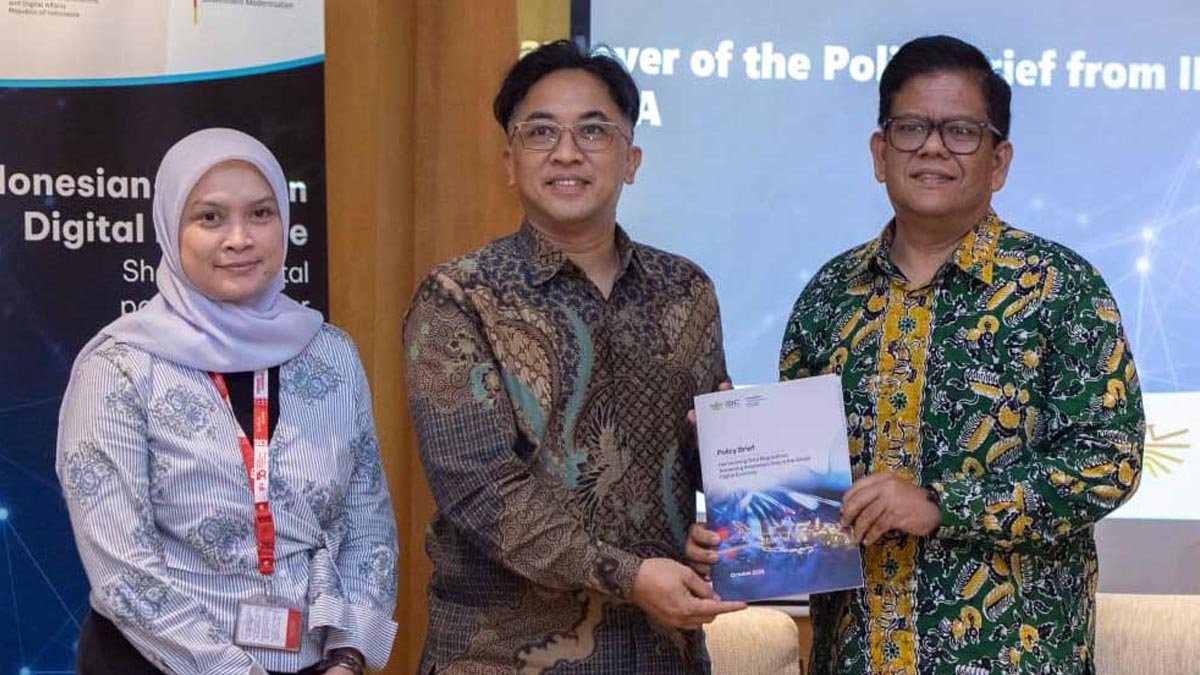PALMOILMAGAZINE, JAKARTA — Indonesia’s efforts to strengthen national data governance and accelerate its digital transformation have gained new momentum. The Indonesian Business Council (IBC), in collaboration with the Indonesia–German Digital Dialogue Secretariat, officially launched a policy brief titled “Harmonizing Data Regulations” last Thursday.
The document offers a practical framework to unify key definitions and obligations in data governance, strengthen trusted cross-border data flows, and reduce compliance frictions for Indonesian businesses seeking to expand into European and global markets.
The launch marks an important milestone toward digital data interoperability that aligns not only with national interests but also fosters broader international collaboration.
Government Support: Toward Clear and Integrated Data Governance
The Head of the Center for International Institutional Affairs at the Ministry of Communication and Digital Affairs, Ichwan Makmur Nasution, emphasized that Indonesia’s current priority is to establish clear, consistent, and interoperable data governance across sectors and borders.
“With trust embedded in digital data management, Indonesia can accelerate digital transformation, strengthen global cooperation, and ensure that the benefits of the digital economy are felt equally by all citizens,” said Ichwan in an official statement quoted by Palmoilmagazine.com on Sunday (Nov 9, 2025).
He noted that consistent regulation is a crucial foundation for building an inclusive, globally competitive digital ecosystem, while also safeguarding national data sovereignty and security.
Business Perspective: Legal Certainty and Cost Efficiency
From the business side, IBC believes that harmonizing cross-border data regulations will reduce legal uncertainty and compliance costs, while expanding opportunities for international cooperation and cross-border financing.
According to Prayoga Wiradisuria, Director of Policy & Program at IBC, compatible regulations between countries can both strengthen data protection and facilitate digital collaboration across sectors.
“IBC is ready to bridge the government, industry, and international partners to turn policy recommendations into concrete actions — opening investment opportunities while ensuring fairness for domestic players,” Prayoga stated.
He added that interoperability is the key to maintaining a balance between data protection and innovation space. This approach enables Indonesia’s digital commodities to compete globally without compromising data sovereignty.
The joint policy brief highlights the importance of trust in cross-border data flows. The proposed model is expected to be adopted more broadly at regional and global levels, particularly within ASEAN–Europe cooperation frameworks.
In addition, IBC and the Indonesia–German Digital Dialogue Secretariat are encouraging continuous dialogue among stakeholders — including government bodies, regulators, industries, and academia — to ensure that policy recommendations evolve into measurable, impactful actions.
As a follow-up, both institutions plan to conduct technical dialogues and multi-stakeholder consultations to develop operational mechanisms supporting investment, digital exports, and data-driven innovation.
The launch of this policy brief marks a significant step toward harmonizing national and international data regulations, positioning Indonesia as a strategic player in the global digital economy.
A complete copy of the “Harmonizing Data Regulations” Policy Brief is available upon request from IBC and the Indonesia–German Digital Dialogue Secretariat.
